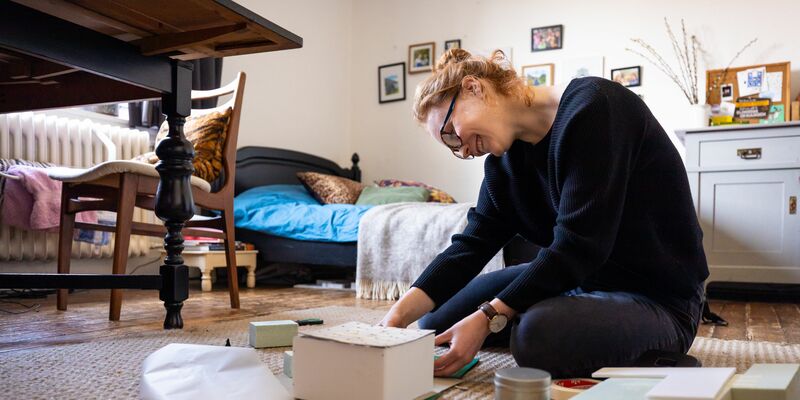
- Corona , Education , Student
- 27/03/2020
How are TU/e students finding online education?
Home time, that's when school's out. Learning is associated with study areas in MetaForum or elsewhere on the campus. But after a week of no lectures, it's time for students to resume their studies and find a rhythm at home that will help them to learn independently. Without the motivating gaze of fellow students. To find out whether they are managing to do this, we asked four people at different stages of their education.
Some things not yet clear: “We get that”
Niels Dusseldorp, bachelor's of student of Architecture, Building and Planning, is currently working on two projects, one of which is his graduation project (BEP). How his BEP will proceed from here on in is something about which he and his project group members have a host of questions – but they get that some things are not yet completely clear. “And of course we've noticed that lecturers are working their socks off to get everything organized.”
It took a little adjustment last Wednesday when he spoke for the first time with his fellow students and tutor via Zoom, Niels explains. “It was a bit comical to start with; we could hear a dog barking in the background. We had to switch gear but once we had, we were very productive. The meeting ran very efficiently.”
Last week Niels had a brainstorming session with his fellow group members and even as they were talking they realized how they could run their online meeting better. “We couldn't use the 'throw it in the group' technique we were used to and scribble on a whiteboard. We took turns speaking and drew up a list of things we'd agreed and questions. This structure helps.”
Niels has stayed put in his student house. But he doesn't find himself being disturbed in his work by his housemates. “During the day we are all working in our rooms, and in the evening we play a game and we play sport in the garden in the morning.”
Not the only one: “Everyone is finding that it's a question of adjusting”
“To be honest, I'm not noticing much difference as far as learning is concerned, but it is does very strange to be sitting at home all day long,” says Anke Staal, first year Psychology & Technology. At home, which is in Roosendaal with her parents and where, it suddenly turns out, her younger brother has passed his final exams in the academic stream of high school (VWO). What's more, her boyfriend is also in Roosendaal, which adds to the appeal. She is taking three courses this quartile and she is studying for them in her bedroom, seated at a good desk.
“For one of my courses, the professor had to step down after four weeks due to heart problems and we were supposed to have guest lectures. We haven't had these yet, so I think the format's now going to be online. For my other courses, I am looking at slides and watching lectures that were recorded last year. It haven’t followed a live lecture yet.”
“I am not keeping to the timetable that was set up for us first-year students of P&T. I am learning at my own pace, and I set my own learning targets each week. Tomorrow morning I've got a test; I've spent the whole week making summaries of the online slides, and learning like this suits me fine. And I'm doing past exam papers.”
Anke does not yet know how she will be asked to take the exams. “Whether my nose is out of joint because of this? Ach, uni staff are doing their best. It's never happened that exams couldn't be taken on the campus. The only thing I know is that the exam for one course is definitely going ahead. But how? Instead of multiple-choice questions we're getting something else. Open questions? With a webcam? Now that would be annoying. But I'm not blaming anybody. On Canvas I saw that we'll get more clarity on Sunday.”
Oral exams: “Pretty nerve-wracking”
Rosa Geveling is a master's student at Chemical Engineering and Chemistry. When Cursor calls her, she does not answer because she is busy doing online self-study in real time that – of course – she can't just put on pause. When we call again, she says, “Live colleges online are okay. It's well organized, I'll say that for it.” Based at her family home's in Huissen, she is taking three courses this quarter. One via video on demand, one live via Canvas Conference, and for the third she was sent a PowerPoint with sound clips.
For one of her exams she does not yet know what form it will take, but the other two have been switched to oral versions. “That's pretty nerve-wracking. The lecturer will see my reaction to hearing the question, my answer really has to be right first time, and I'm simply not used to it - yet.” It has been agreed that an exam will take twenty minutes. It's a lot of work for the lecturers; one of her courses has sixty students, Rosa knows. A trial run of how a series of oral exams like this will be held using BigBlueButton was held yesterday at ST. “That revealed that the switching from one student to the next isn't yet going smoothly. That's why I am going to take part as a volunteer in another practice session on Monday.”
Completing a master's from home: “there's no structure any more, you have to get used to that”
Myrthe Coppers is supposed to graduate in early July in the graduation studio called The Instrumental Building, which is run by Built Environment. “That is still the plan, but it may get pushed back a little. I don't yet know, my priority at the moment isn't getting an exact deadline. I have to find a new daily routine. Until now TU/e’s measures to tackle corona have been changed so often. I am trying to concentrate on my work again.” If it turns out she needs a postponement, that's not something she's going to worry about now. “I get on well with my supervisors, I'm sure an appropriate solution will be found.”
Now of all times you'd expect to be able to apply yourself two hundred percent because a lot of other activities are on hold, says Myrthe, “but in practice, I'm not managing this.”
The problems she is encountering are the same for many students. “No work space in Vertigo, no throwing ideas back and forth with other master's students on floor 5, no way to quickly share an idea with fellow master's students or supervisors or of printing a technical drawing. As a group, we are trying to make the best of it. The problem of not being able to make any architectural models for our final presentation we are solving with digital illustrations. We get feedback on work we've submitted over the telephone, and we are using Zoom whenever we want to discuss things as a group.”
Normally, she would be in Vertigo every day, but now she is working in her student house where six others are also trying to find a daily routine. “After an chaotic first week, everyone started studying again. We are eating dinner and lunch together more than we used to.”
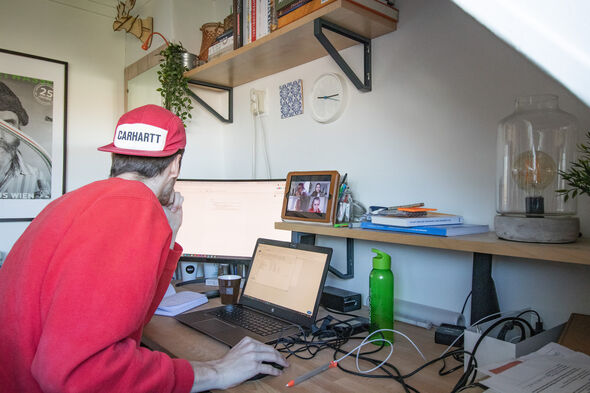
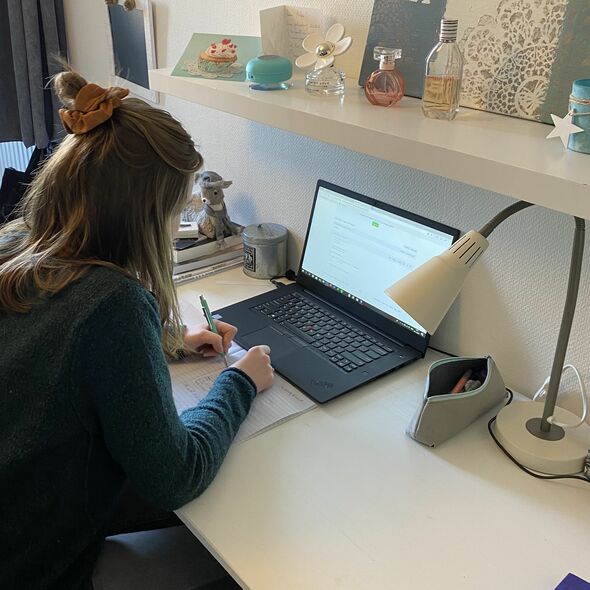
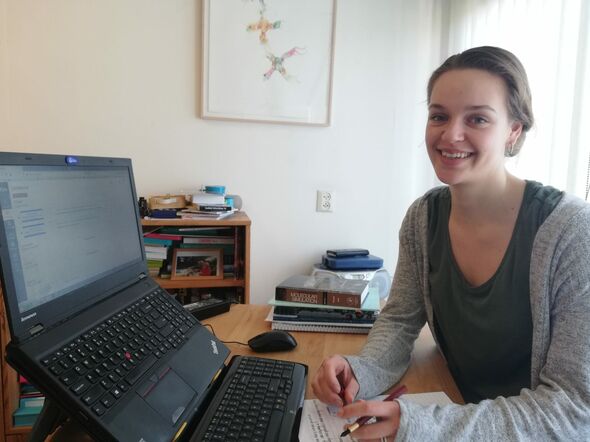
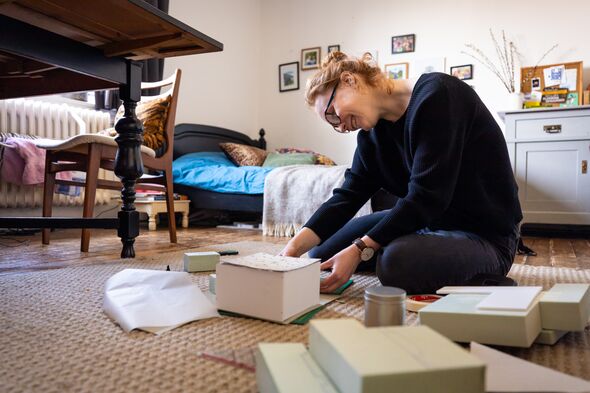
Discussion